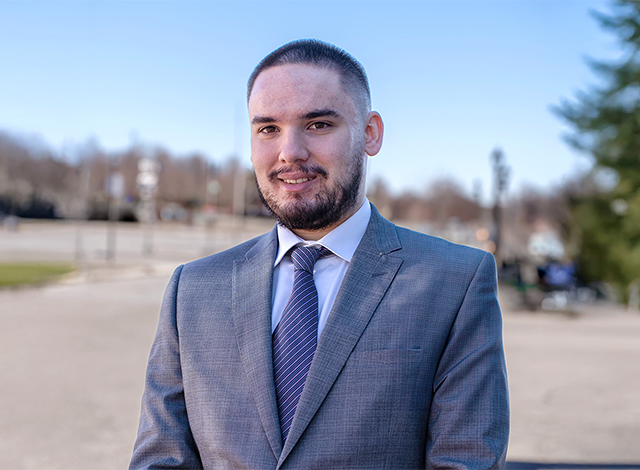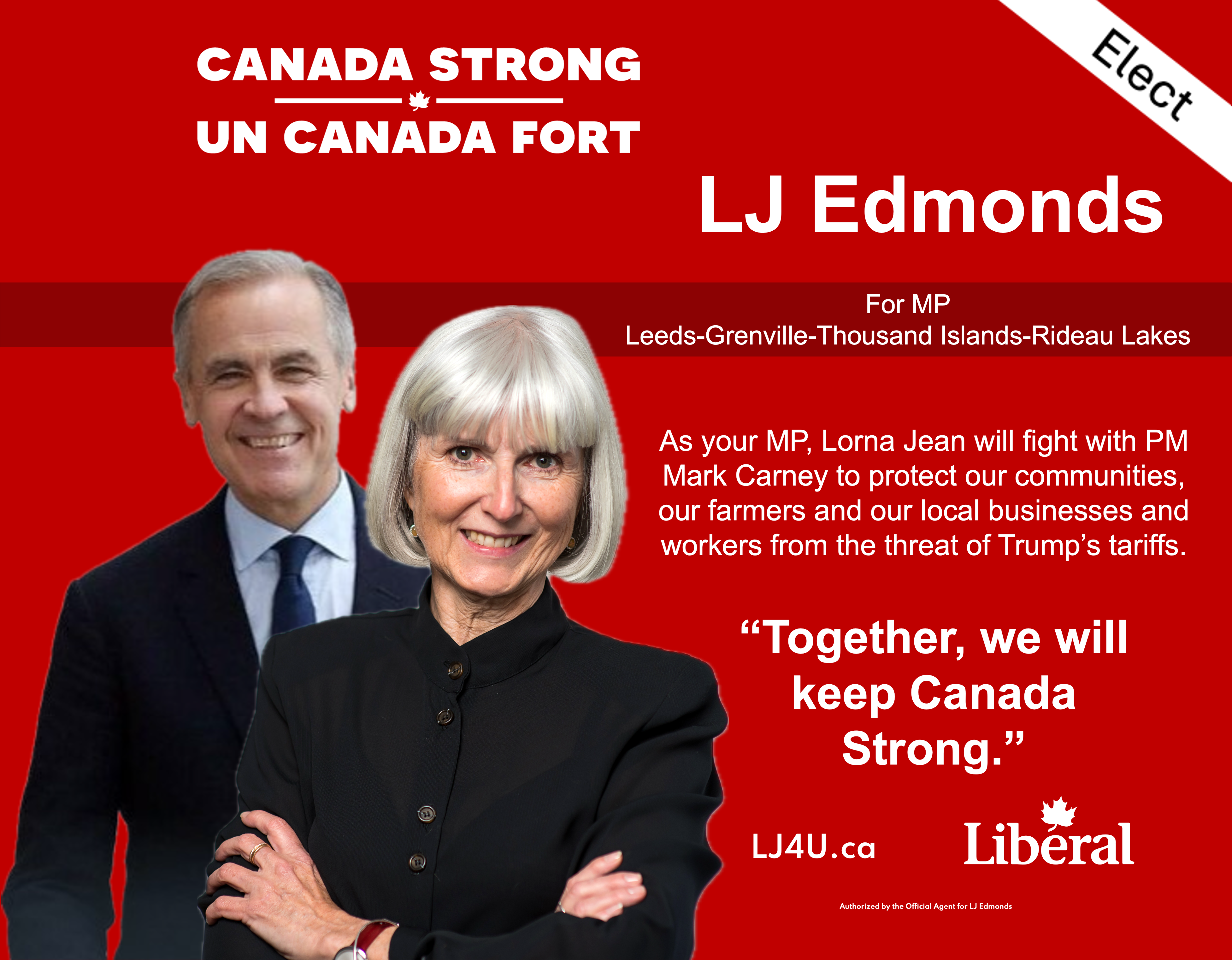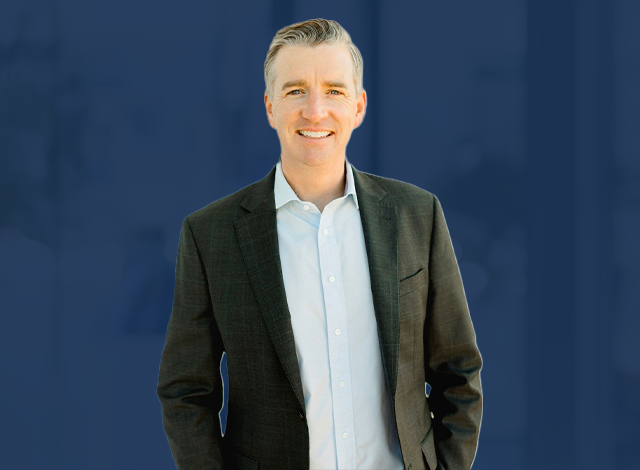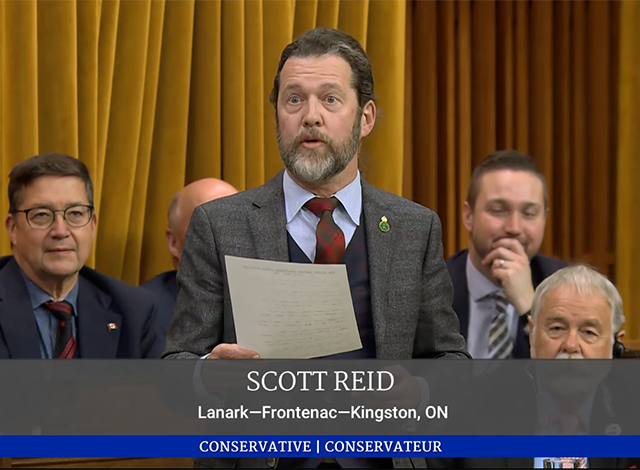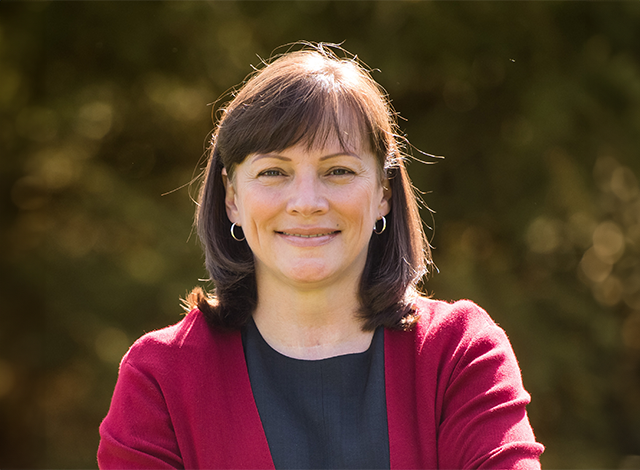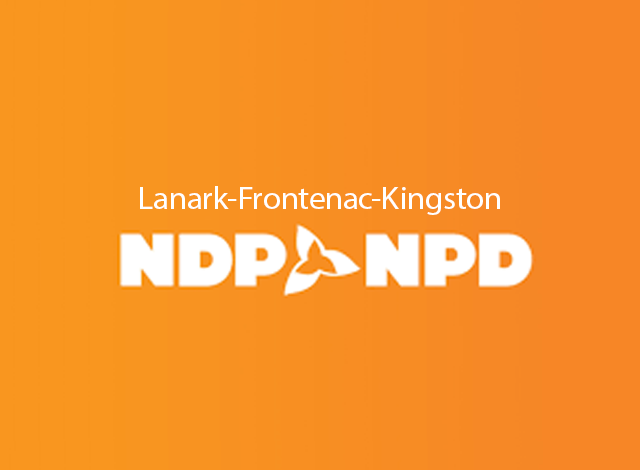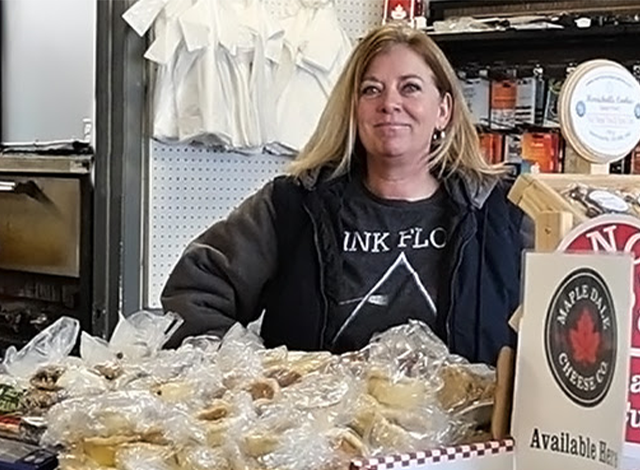LAURIE WEIR
The New Democratic Party candidate Paul Lancione says he believes it’s time for Leeds–Grenville–Thousand Islands and Rideau Lakes to think differently about economic recovery, job protection and public investment. A long-time local resident, Lancione is pitching an NDP platform focused on affordability, sustainability and protecting Canadian industries. He supports NDP Leader Jagmeet Singh’s worker-first agenda and says voters across the political spectrum should expect more from Ottawa than “the usual excuses.”
Lancione participated in the 3 Questions series posed by Hometown News.
1. How will your party’s plan protect local jobs and small businesses from the impact of U.S. tariffs?
This riding is home to a diverse mix of industries—from manufacturing and tourism to agriculture and financial services. Tariffs will affect all of them, and as a border community, we’re especially vulnerable. We need a government that will defend Canadian industries and workers.
The NDP will reform Employment Insurance so that workers can access the supports they pay into. That includes expanding EI to cover contractors and self-employed people who may lose their livelihoods, but also to help small businesses retain staff by offering EI top-ups to workers whose hours are reduced.
Leeds–Grenville–Thousand Islands and Rideau Lakes is home to many multinational companies. If those companies receive public funding and decide to leave Canada, the NDP will ensure they cannot relocate manufacturing equipment out of the country. We’ll also push to diversify exports across all industries so that we’re less reliant on the U.S.
We’ll protect supply management in any trade deal, ensuring small family-owned farms aren’t pushed out by large American agri-businesses. The Liberals gave American companies access to 3.5 per cent of our dairy market—costing Canadian farmers an estimated $1.3 billion. The Conservatives, who dismantled the Canadian Wheat Board, have a poor track record on this too.
The NDP also plans to sell Victory Bonds, offering 3.5 per cent interest tax-free if held to maturity, with 5- and 10-year terms. Revenues from the bonds, along with dollar-for-dollar reciprocal tariffs, will be invested into housing, infrastructure, healthcare and the development of a national east–west energy grid.
Here in the riding, we already have renewable energy startups like Arbru Solar Brewery, the Skyview 2 battery project and Ingredion. These Canadian-owned, future-focused companies are creating jobs today. With further investment, they could create even more high-paying, union-protected jobs. Farmers can also sell produce to companies like Ingredion to make biofuel from plant material, which can be shipped through the Port of Johnstown.
Meanwhile, investing in conventional energy infrastructure—like pipelines, as proposed by both the Liberals and Conservatives—won’t create jobs here or lower the cost of living. It would be a waste of taxpayer dollars, especially as renewables continue to outpace fossil fuels in cost and efficiency.
We have the talent and the opportunity to make this riding a green-energy powerhouse—and the NDP is the only party willing to invest in that vision.
We’ll also invest in infrastructure and housing. This is one of the few areas in Ontario where homes are still relatively affordable, and we need to act fast to keep it that way. We’ll launch a building blitz of rent-controlled affordable housing, creating jobs and helping to solve the housing crisis.
We’ll also invest in high-speed internet and broadband infrastructure across rural ridings. There are too many dead zones in this region, and in today’s digital economy, every resident deserves reliable service.
On a personal note, I’ve spoken with local Royal Canadian Legions, and many are in disrepair. The Delta Legion, for example, is out of service because it’s no longer accessible for people with disabilities. I come from a military family, and it’s disappointing we can’t find the funding to make these spaces accessible. Though it may not be a direct jobs issue, I would like to see municipal, provincial or federal infrastructure dollars used to restore these important institutions. Disabled veterans deserve full access to the places created to support them. If elected, I’ll work to make that happen.
2. What’s your stance on party leadership — do you support their approach to Canada’s economy, and why?
Jagmeet Singh is an excellent leader who’s delivered major victories for working Canadians. Under his leadership, the NDP helped expand our public healthcare system in a historic way. Because of us, 3.3 million seniors and children now have access to dental care. Free birth control and diabetes medications are rolling out soon under our pharmacare plan, and a national school food program is on the way.
Singh has always championed workers’ rights. As a defence lawyer, he advocated for people’s charter rights and did pro bono work for community groups. That advocacy shaped his leadership. The NDP forced the Liberals to pass anti-scab legislation, protecting union workers’ right to collective bargaining.
Through the Supply and Confidence Agreement, we held the Liberal government accountable while delivering for Canadians. It wasn’t a coalition—there was no power sharing. But we used our 24 seats to get real results.
When the Liberals undermined rail workers’ right to strike, Singh cancelled the agreement before its 2025 conclusion. That triggered a non-confidence crisis, and Prime Minister Justin Trudeau prorogued Parliament and resigned.
Singh’s economic approach is clear: everyone should be able to afford the basics, the richest Canadians should pay their fair share, and our public investments should benefit everyone—not just corporations. While corporate profits are at record highs, $39 billion in taxes are hidden offshore. The system isn’t working for working people.
Under Singh, we’ll cap grocery prices, launch new consumer watchdogs, and cut sales tax on essentials like groceries, diapers, phone and internet bills, and restaurant meals. We’ll raise the basic personal amount to $19,500, saving most Canadians up to $500 annually. Our tax plan benefits people earning under $50,000 more than any other party’s, while Liberal and Conservative plans help those making over $250,000 the most.
We’ll also close tax loopholes, open federal land for housing, extend EI to 50 weeks, increase benefits to two-thirds of insurable earnings with a $450 weekly minimum, and waive the one-week waiting period.
When working people have money and time, they put it back into the economy—and everyone benefits.
3. Why should long-time Conservative voters in this riding take a chance on you — or your party — in this election?
The Conservatives say they’re for “average Canadians.” But when they cut taxes, it’s for the richest. When they talk about cutting red tape, they mean dismantling the protections that workers, consumers and small businesses rely on. And they keep harping on fictional culture war issues instead of solving real economic problems.
Just look south of the border. Pierre Poilievre echoes Donald Trump’s rhetoric word for word. If elected, he’ll do to Canada’s economy what Trump is doing to the U.S.—and let the wealthiest hollow out government at the expense of everyone else.
When the NDP says we’ll cut taxes for working people, we mean it. When we say we’ll improve access to housing, public services and small business supports, we follow through. And when we advocate for social progress, it’s not a distraction—it’s part of building an economy that works for everyone.
People are tired of Liberal inaction, and I don’t blame them. But electing Conservatives won’t fix it. Regardless of who forms government, electing NDP MPs leads to better outcomes. We have a record of holding governments to account and delivering results for everyday Canadians.
I grew up here. These are my neighbours, friends and family. Even if we don’t agree on every issue, I’ll show up, listen, and work hard for everyone in this riding.





